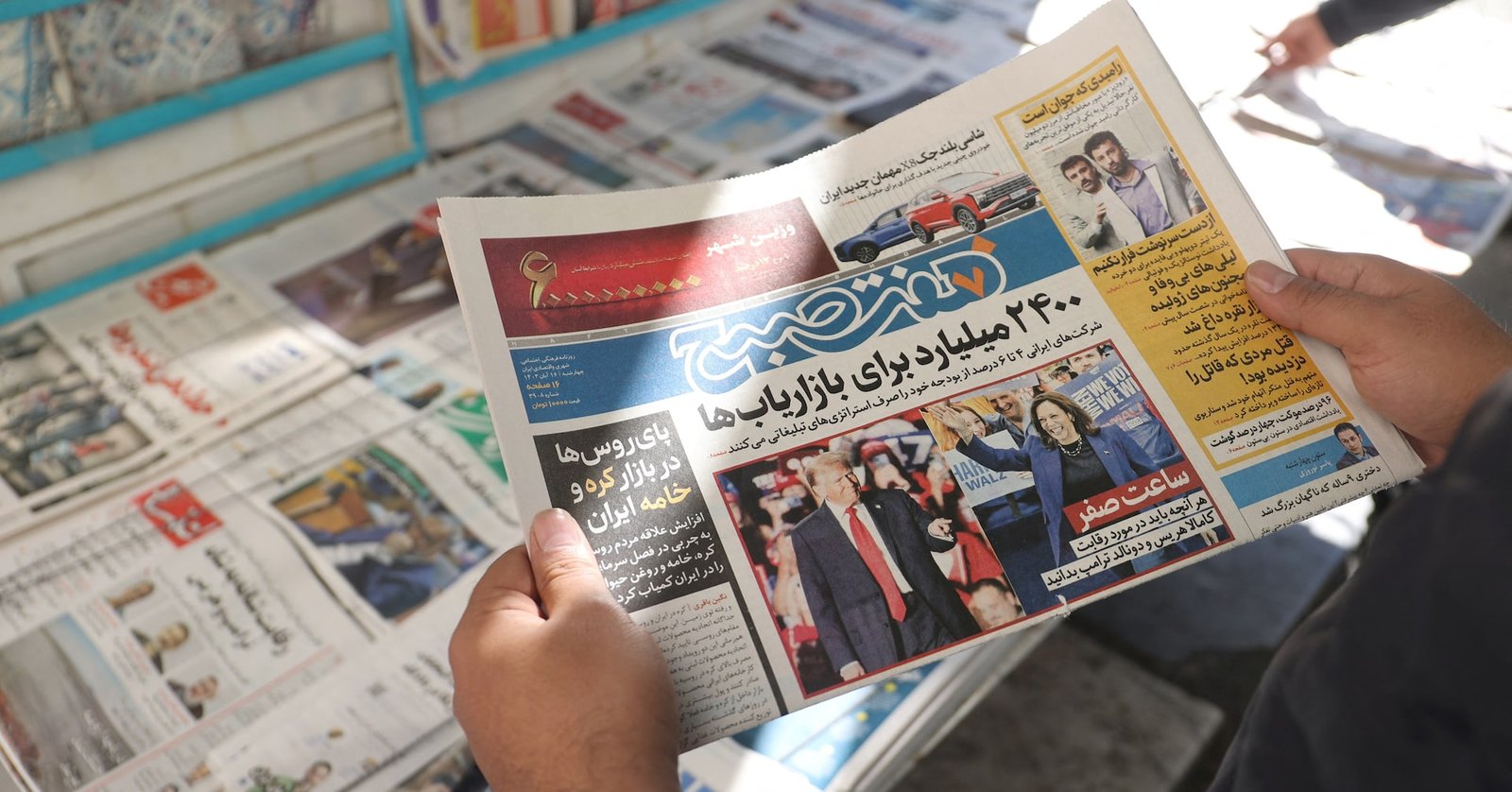Item 1 of 2 Tehran, Nov. 6, 2024. Majid Asgaripour/WANA (West Asia News Agency) via REUTERS
[1/2]Tehran, Nov. 6, 2024. Majid Asgaripour/WANA (West Asia News Agency) via REUTERS Purchase Licensing Rights, opens new tab
WASHINGTON, Nov 8 (Reuters) – The United States charged an Iranian man on Friday in connection with an alleged plot ordered by Iran’s elite Revolutionary Guards Corps to assassinate President-elect Donald Trump, the Department of Justice said.
Farhad Shakeri informed law enforcement “that he was tasked on October 7, 2024, with providing a plan to kill” Trump, the department said in a statement. It said Shakeri told law enforcement he did not intend to formulate such a plan within the time frame directed by the IRGC.
Iranian Foreign Ministry spokesperson Esmail Baghaei said in a statement carried by Iranian media on Saturday that the claim was a “repulsive” plot by Israel and Iranian opposition outside the country to “complicate matters between America and Iran.”
The DOJ described Shakeri, 51, as a Revolutionary Guard asset residing in Tehran. It said he immigrated to the U.S. as a child and was deported around 2008 following a robbery conviction. Shakeri is at large and believed to be in Iran, the prosecutors said.
Two New York residents whom Shakeri had met in prison, Carlisle Rivera and Jonathan Loadholt, were also charged with helping Shakeri plot to kill a U.S. citizen of Iranian origin in New York, described as an outspoken critic of Iran’s government who had previously been targeted for murder.
Prosecutors did not identify the target, but it matched the description of Masih Alinejad, a journalist and activist who has criticized Iran’s head-covering laws for women. Four Iranians were charged in 2021 in connection with a plot to kidnap her, and in 2022 a man was arrested with a rifle outside her home.
Rivera and Loadholt were ordered detained pending trial. Their lawyers did not immediately respond to requests for comment.
Sign up here.
Reporting by Katharine Jackson and Dubai newsroom; Editing by Rami Ayyub, Alistair Bell and William Mallard
Our Standards: The Thomson Reuters Trust Principles., opens new tab
